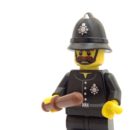Parenting Kids & Teens with OCD: Don’t Feed the Reassurance Monster…and Other Quick Tips
Many excellent parents struggle with how to appropriately parent their child/teen with obsessive-compulsive disorder (OCD). Unfortunately, this process is rarely straightforward and is often counter-intuitive, which leaves many parents feeling anxious and confused. As a psychologist in Palm Beach County, Florida, I work closely with kids, teens, and parents throughout the greater Palm Beach, Fort Lauderdale, and Miami areas on strategies for recovering from OCD. I also run a free support group for kids/teens with OCD. Consider the following set of ground rules for parenting your child with OCD. The strategies you adopt as a parent can mean the difference between reducing your child’s symptoms or giving these symptoms room to grow. 1. Remind yourself that OCD is based on emotion rather than logic. Many parents get tripped up and frustrated by the many illogical forms that OCD takes....
Read MoreTrichotillomania: Goodbye “Trich Police”, Hello HRT
Imagine that you have a rather large blemish right in the middle of your forehead. It’s not one of those pseudo-invisible blemishes that can only be perceived by you. Rather, it’s an angry, red mark that is readily apparent to nearly all the people with whom you interact throughout the day. Most people are polite enough and don’t acknowledge it out loud, although you can sometimes feel their lingering gazes. Others are less discrete, and you’re forced to have a short conversation about it. Neither situation is welcome; in fact, you’re beginning to wish that you had just stayed at home. Now imagine that multiple times throughout the day, a well-meaning person gives you advice on skin care. At first maybe this advice is welcome, and you might even be exposed to some new ideas that you wouldn’t have...
Read MoreHoarding: Treatment, symptoms, and personal impact/costs
The topic of hoarding is rarely met with disinterest. Maybe that’s because nearly all of us can relate to hoarding on one level or another. Perhaps you yourself have been touched personally by hoarding. You may have a strong emotional attachment to objects, or you may have a loved one who inexplicably continues to add to an already existing surplus of items. This surplus may be small, or it may be quickly exhausting all remaining living space. Perhaps you don’t have issues with surplus, but you consider yourself a “pack rat” or a “collector”. Maybe you have a nice collection of art or knickknacks, and you can relate to the urge to over-acquire. Perhaps you are “organizationally challenged” and have struggled with how to best categorize and store your possessions. Maybe you have difficulties with throwing out your newspapers before...
Read MoreHoarding treatment: Choosing the right therapist
If you are an individual who struggles with hoarding, you might have been frustrated by negative treatment experiences in the past. For most individuals who hoard, treatment can be challenging. However, it is an essential ingredient for regaining control and reclaiming your life. When selecting a therapist to help you address your hoarding, make sure that your potential therapist practices cognitive behavioral therapy for hoarding (or CBT for hoarding). Based on research studies, this type of treatment is most likely to be effective in supporting long-term positive changes and leaving you less vulnerable to relapse. Unfortunately, there are very few South Florida psychologists who have formal experience with hoarding treatment. Make sure that when you interview your potential psychologist, you ask them about their experience in treating hoarding. A CBT orientation alone is not sufficient; make sure that they’ve treated other...
Read MoreWebsite updates: Research, treatment philosophy, & information sections
I am working on some substantial content changes to this website, which will be rolling out gradually. Just to orient you: 1. My OCD research section has been updated. 2. I have added a section about my treatment philosophy. 3. I am in the process of developing a psychoeducation section for this site. My goal is to provide basic information about many of the common problems I treat. These include obsessive compulsive disorder (OCD), social anxiety (social phobia), panic attacks (and panic disorder), generalized anxiety disorder (GAD), phobias, depression, hoarding, body dysmorphic disorder (BDD), trichotillomania (trich), tics, and Tourette’s syndrome (Tourette’s disorder). Questions? Comments? Sound off...
Read More







